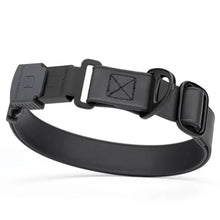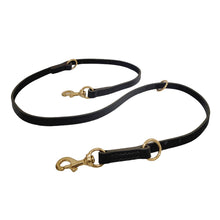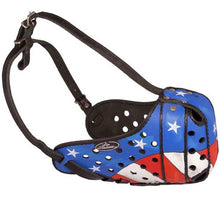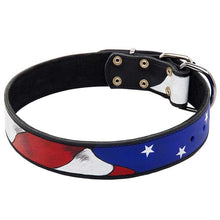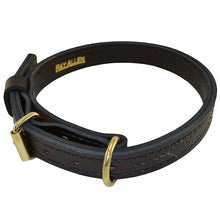Solving Skin Irritation, Hot Spots, And Yeast

German Shepherds tend to have a lot of skin issues, from allergies, hot spots, and fungal growths that appear as thinning fur and discolored skin. Every day we get questions about how to solve these issues, and at last, we'll lay out everything you can do in this article today.
First off, we want to find the source and eliminate it. If we're unsuccessful in they endeavor, then we will move to treatment options. When there are skin issues in German Shepherds, it is almost always allergies.
The #1 thing to look into would be changing your dog's diet. If you're feeding a "regular" kibble, it's likely chicken or beef. And if it's beef, it likely has chicken in the ingredient list. In my experience, cooked chicken by way of kibble is at the very top of the list for food allergies. If you're experiencing hot spots, hair loss, graying skin, grayish build up in the ears, frequent ear infections, etc, start with changing your dog's food to a lamb and rice kibble, or a salmon based kibble. This alone solves a lot of people's issues with their dog.

If that doesn't work, try grain free. Some studies have suggested that grain free may have some serious health complications, such as Taurine deficiency. But another test shows no Taurine deficiency at all. That's a fancy way of saying the people studying whether or not grain free is bad have no idea. But, what I know is that switching to a kibble with no corn often helps with allergies. So does switching to kibble with no wheat products. Consult your vet and ask if they believe it's safe to try grain free to see if it'll help with your dog's allergies.
If you're still having problems, this is where I would recommend doing away with kibble all together and researching a proper raw diet. A lot of dogs that are allergic to cooked chicken, can eat raw chicken and be fine. There are no grains in the raw diets I've seen other people use, and I definitely don't use any in mine, so that's eliminating a possible allergen as well. Just make sure you do thorough research on raw diets before jumping into it. A dog cannot live on muscle protein alone. They must eat organ and bone to get balanced nutrition from a raw diet.
There are many dedicated groups full of people who would be more than happy to help you. In fact, many members on this very page are raw feeders who have a wealth of information they would love to share. I would know, because I'm one of them and know of more than a couple others!

This is anecdotal evidence, but in my personal experience with dozens of dogs ... I've yet to see a single dog with severe skin allergies who didn't improve on a raw diet. Most have their allergies go away all together, but some still have (lessened) issues. Allergies are an immune system disorder, and sometimes they're just really bad, or other factors, like allergens to grass, dust mites, etc, can't be escaped. It's like no matter what you do, the best you can hope for is to lessen the symptoms. So, if that's where we're at, what's next?
Over the counter medication. That's the next step. If you're having issues with gray skin or weeping sores, these 2 shampoos will help get rid of the microorganisms that are trying to set up shop. The first is good all around, the second is a little better for yeast issues:
DAVIS - Chlorhexidine- Shampoo
DAVIS - Sulfer Benz- Shampoo
If it just tends to be hot spots and inflamed skin, this all-natural shampoo is the better choice and one I would recommend: NATURAL DOG COMPANY - Itchy Dog Shampoo

Giving a lot of baths to German Shepherds with a healthy coat is bad for them. It's worse if they already have issues. So, what can you do between baths to help? Use a medicated anti-itch spray. It helps heal the skin and helps provide relief for the dog as well.
DAVIS - Pramoxine Anti-Itch Spray
And treating the outside is important, but treating the inside is even more important. We have carried these for years and they really make a difference:
NATURAL DOG COMPANY - Aller-Immune Supplement
Food, check, immune supplements and shampoos, check, and we've even gotten an anti-itch spray for flare-ups. After all of this, if you're happy the allergies and skin issues are under control, mission accomplished! I'm so glad that we were able to figure this problem out and get your dog comfortable in their own skin, corny pun intended.

But, if you're still unhappy with the results after 3 or 4 months, it may be time to call your vet and talk about prescription drugs. They may order an allergy panel ran, prescribe pills, or they may jump straight into injections. The pills can be expensive, and the injections definitely are because most vets will charge an "office" or "checkup" fee along with the price of the medication.
I know this isn't ideal, but sometimes we're just unlucky. I've seen allergies so bad that dogs would barely eat. They wouldn't play, even as puppies. Immune system disorders can wreak havoc on the body, and they should be taken seriously.
In the vast majority of cases, doing these things will give you vast improvements in your dog's condition. Just stick with the program and keep to it and you should be able to make your dog more comfortable. In the rare case that you can't, it's up to you and your veterinarian on where to go from there.

I hope this helps some of you who needed to read this. And don't mind the shameless plugs to items from our store. We wouldn't carry them or recommend them if we wouldn't use them ourselves. That's the general gist of the whole store. Dog people, German Shepherd people, who have used a lot of these products, or at the very least heard great things about them from trusted friends. I thank you all for your time, and wish your and your dog the best if you're dealing with allergies. It's never fun. Until next time, please hit like and share, it helps with the algorithm and this is definitely an article that needs to be seen and shared.
You might also like: German Shepherd Shedding: Managing Seasonal Coat Blows and Reducing Allergens in the Home






